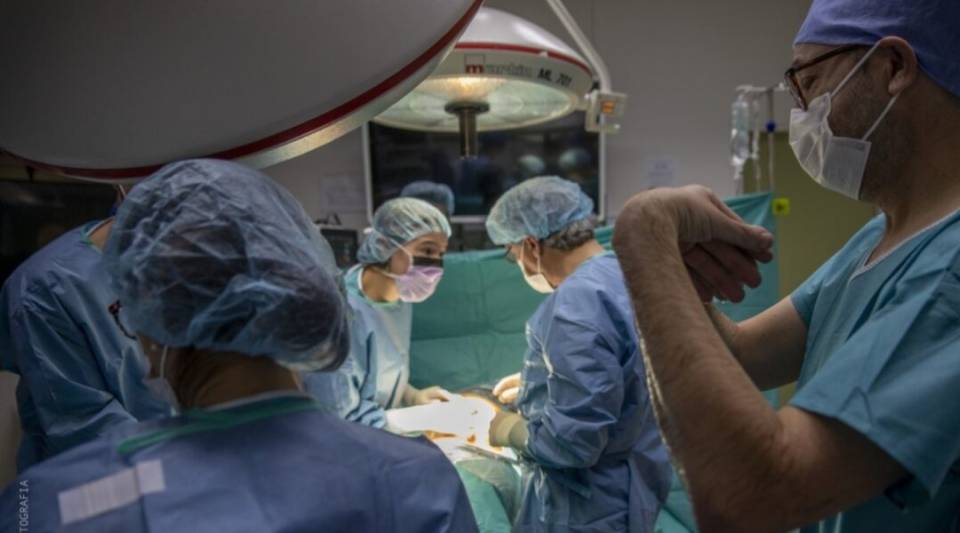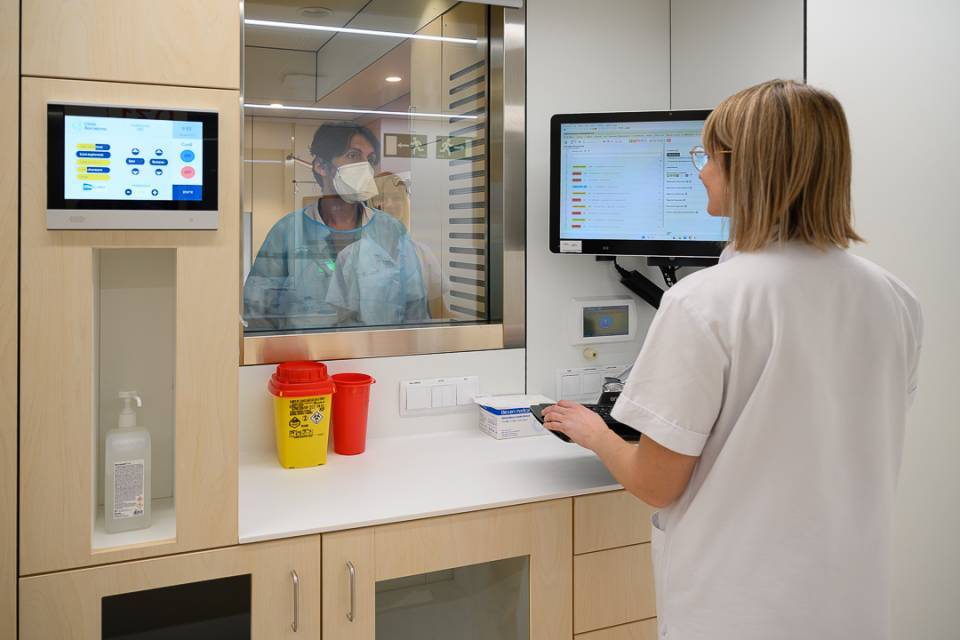The Hospital Clínic Barcelona has performed the first conservative surgery on a patient with placenta accreta. It was carried out by the Maternal-Fetal Medicine Service, led by Dr. Francesc Figueras. The Hospital Clínic has become the first hospital in Spain and one of the few in Europe to perform this type of surgery. However, it is an emerging technique that is increasingly being integrated into clinical practice, especially in countries where the incidence of placenta accreta is much higher than in Spain.
Placenta accreta occurs when the placenta grows too deeply into the uterine wall during pregnancy and, since it is attached to the uterus, it does not detach after childbirth. It is a serious pregnancy complication. In the most severe cases, the placenta can even affect pelvic organs such as the bladder and the intestine. Although it is a rare phenomenon in pregnancy, it is currently on the increase.
The usual approach in these cases is the surgical removal of the uterus after childbirth and, in the cases in which it is identified before delivery, a caesarean section is recommended. This surgical technique is complex and not without complications. Moreover, it prevents the patient from becoming pregnant again.
Conservative surgery consists of resecting only the affected area after the birth of the child and performing uterine reconstruction. The main benefit of this surgery is that the patient preserves the uterus and can therefore become pregnant again safely.
Dr. Anna Peguero says that the fact that the patient can keep her uterus after having placenta accreta is a real breakthrough. “Thanks to this surgery, the risk of having another placenta accreta to the same degree is not increased if the patient becomes pregnant again, and it is also associated with good perinatal outcomes”. Dr. Figueras adds that “other possible benefits derived from this technique are shorter operation time, less blood loss and lower risk of surgical complications”.




